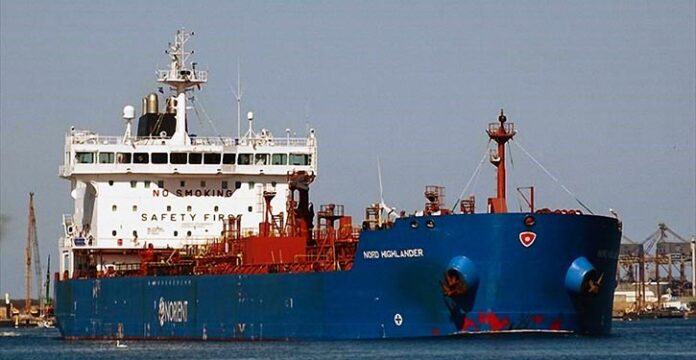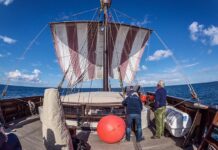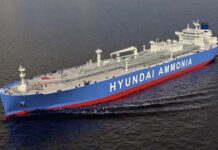Danish shipping company Dampskibsselskabet Norden A/S announced that they have successfully finalised a test voyage with one of their large commercial ocean-going vessel, the NORD HIGHLANDER, being powered by CO2 neutral biofuel. International NGO supports Norden’s attempt to take action and reduce global warming
“Norden is proud to be at the forefront of testing and introducing CO2 neutral fuel that truly makes an impact on the highly important agenda of reducing the carbon footprint of shipping“, says CEO Jan Rindbo, Norden.
Kåre Press-Kristensen, Senior Adviser, Ecological Council, says: “We appreciate that Norden is investigating specific solutions to the climate challenge. We need actions here and now to meet the climate goals of the IMO and we are proud that Norden takes action, taking a leading role in biofuels, and look forward to following the development.”
The test documented that 2nd generation CO2 neutral biofuel is a technically and economically suitable and thereby a realistic alternative to comparable fossil fuel. The test onboard the NORD HIGHLANDER documented that the engine performance is not affected, i.e. the full performance envelope can be delivered without restrictions. The initiative is in line with Norden’s efforts to reduce its carbon footprint.
“Norden has come a long way in increasing fuel efficiency and has reduced CO2 emissions per tonne cargo transported on owned tanker vessels by 25% between 2007 to 2017. With the newly introduced IMO targets on CO2 reductions, however, it is evident that increased fuel efficiency alone is not enough. We need alternative solutions and with this test, NORDEN has shown a viable method towards reaching these targets,” says Jan Rindbo.
Jan Rindbo expects that once the CO2 neutral transport becomes available it will be in high demand: “Now that we have proven CO2 neutral transport as a viable alternative, I am convinced many carbon conscious customers within a foreseeable future will demand this type of transport.”
Norden acknowledges that biofuel may not be the sole solution in the long run, however, believes that the carefully chosen second generation biofuels used can contribute significantly to reducing our CO2 emission here and now.
The test voyage was conducted in September 2018 in co-operation with Rotterdam-based GoodFuels – an innovative and market leading company in the field of advanced sustainable fuels. The test voyage was a ballast trip from Rotterdam in the Netherlands to Tallinn in Estonia, on the 37,000 dwt, 182-meter-long Handysize product tanker vessel NORD HIGHLANDER.
To compare how the engine, a MAN 7S50MC-C7 rated 11.060 kW at 127 rpm, reacted on the biofuel as an alternative to low sulphur fossil fuel, the departure from Antwerp was conducted on fossil fuel. After a visual inspection of the engine, the vessel switched to biofuel. During the voyage the engine was operated at different loads for sufficiently long periods to establish stable performance. After the test, a final visual inspection of the engine was conducted, which confirmed that the engine was not negatively affected by the biofuel.
Norden will continue working with GoodFuels to gain further experience with biofuel as an alternative to low sulphur fossil fuel. NORDEN is also considering other possibilities to lower the carbon footprint. The goal is to offer commercially attractive CO2 neutral transport to customers within the foreseeable future.




